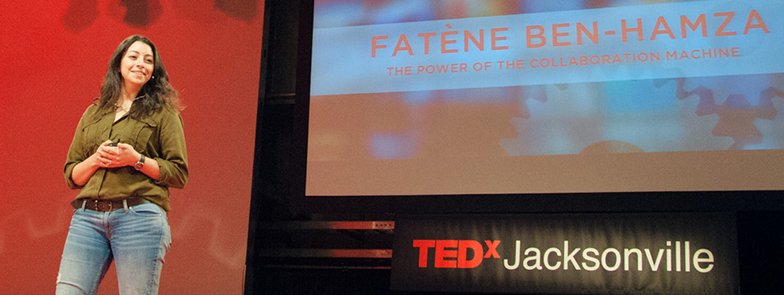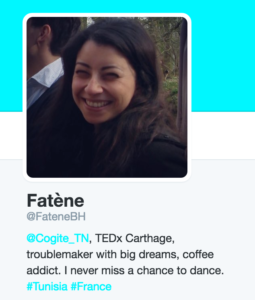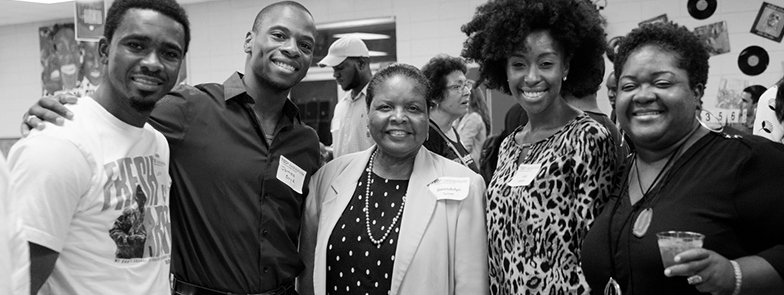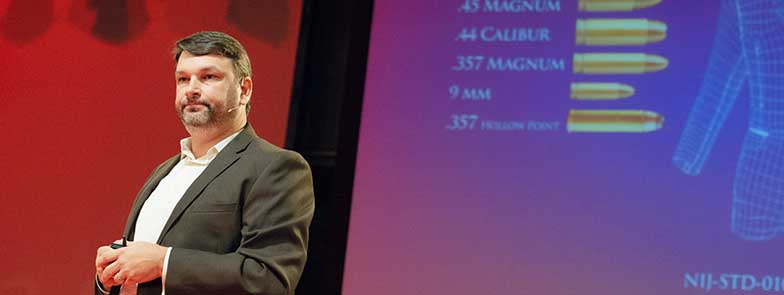
1. How did the idea for your TEDxJacksonville talk get started?
“The idea for my talk started with a reflection back on the time I have spent in Tunisia and the projects I have developing there since 2009. I wanted to share about my experience in a way that could speak to many people around the world. A major insight that struck me when I moved to Tunisia was this opposition of extensive security vs. the absence of intellectual safety. And while these examples of extensive “security,” such as police or walls that we see more and more all around the world, are supposed to make us feel safe, these efforts, rather, have little to do with providing safety and the safe spaces necessary to encourage creativity, innovation, and celebration of new, exciting ideas. This is where my talk began.”2. What updates or progress have you seen since your talk?
“One of the great things about my job at Cogite is that I get to create safe spaces every day for mostly, communities of entrepreneurs and also students with TEDxCarthage. Since my talk, we have started more and more to think about ways to create more safe spaces in other regions of our country but also to take it to different communities and on different topics. This talk has also sparked great conversations with people from all over the world, Jacksonville included and helped me realize how universal the need for these safe spaces is.”3. What are recommended resources related to your talk (books, websites, etc.)?
“Rules for radicals (Saul Alinsky)”4. How can people take action on your idea (volunteering, sharing the message, etc.)?
“It’s important that people realize that these safe spaces are not difficult to construct and that perhaps they have been creating these spaces already without even realizing it. Once people are aware of the simple ingredients to a powerful safe space, they can consciously seek out these places or groups where they can be vulnerable, explore, reach a greater creative potential and solve problems. It’s also important that people understand this constant tension between safety and security that underpins modern society, and be conscious of the trade off between the two when making decisions in their lives.”5. Who is your mentor, or who inspires you?
“Many fearless friends, particularly in the TEDx Community, who taught me how to embrace every adventure given to me. The community is so diverse, open-minded and respectful to differences, it is my number 1 personal safe space.”6. What is your favorite TED or TEDx talk (aside from yours)?
“Not mine ☺ So far my favorite TED talk is Aman Mojadid’s “A sense of humor about Afghanistan.” Also, Emily Wapnick’s “Why some of us don’t have one true calling.”7. What invention/idea do you hope will come to life within the next 10 years?
“Personalized genetic disease cures.” Keep up to date with Fatène Ben-Hamza via Twitter. Thank you for trusting TEDxJacksonville to lead this conversation.TEDxJacksonville is a 100% volunteer based organization.
Thank you for trusting TEDxJacksonville to lead this conversation.TEDxJacksonville is a 100% volunteer based organization.
 Author: Becka Lee Gruber
Author: Becka Lee Gruber





